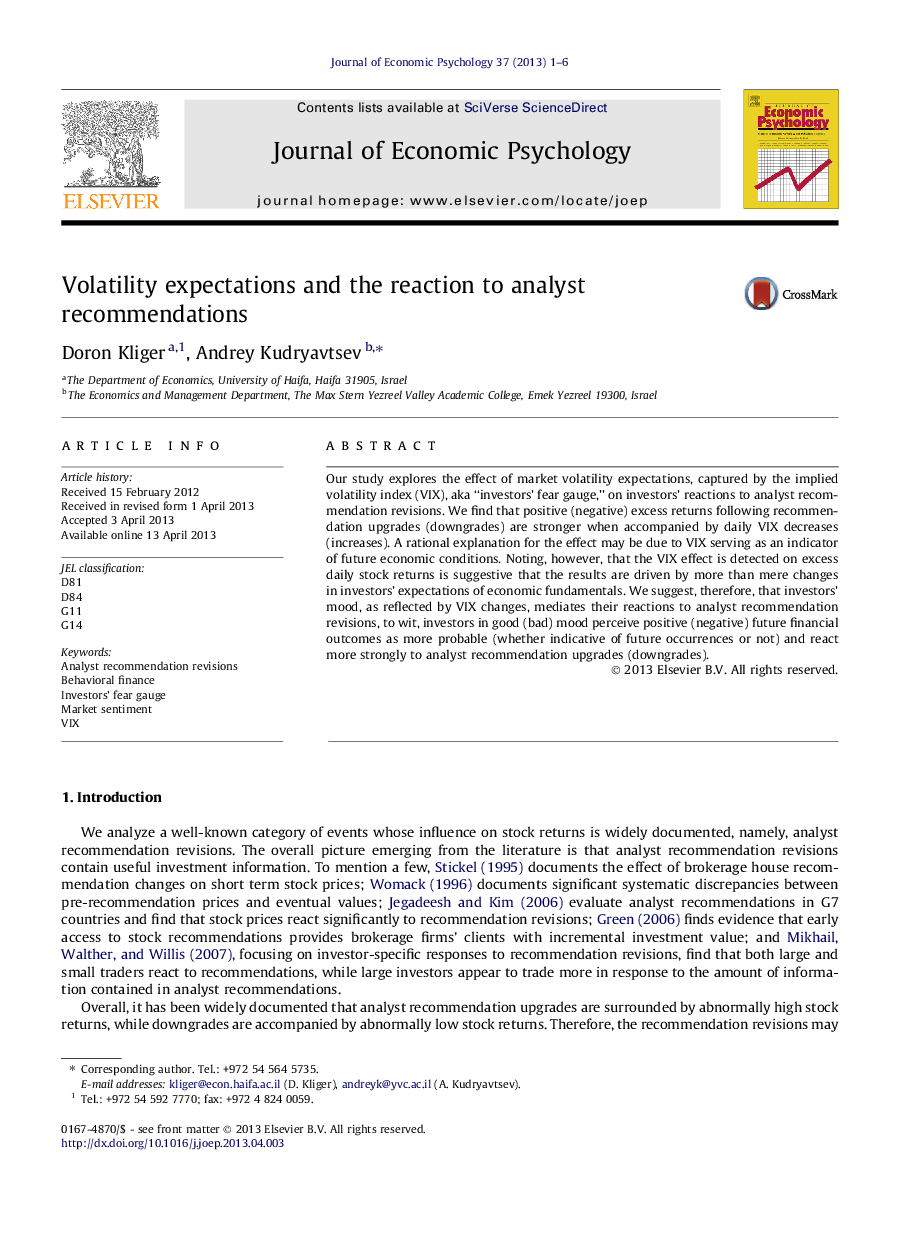| Article ID | Journal | Published Year | Pages | File Type |
|---|---|---|---|---|
| 7245027 | Journal of Economic Psychology | 2013 | 6 Pages |
Abstract
Our study explores the effect of market volatility expectations, captured by the implied volatility index (VIX), aka “investors' fear gauge,” on investors' reactions to analyst recommendation revisions. We find that positive (negative) excess returns following recommendation upgrades (downgrades) are stronger when accompanied by daily VIX decreases (increases). A rational explanation for the effect may be due to VIX serving as an indicator of future economic conditions. Noting, however, that the VIX effect is detected on excess daily stock returns is suggestive that the results are driven by more than mere changes in investors' expectations of economic fundamentals. We suggest, therefore, that investors' mood, as reflected by VIX changes, mediates their reactions to analyst recommendation revisions, to wit, investors in good (bad) mood perceive positive (negative) future financial outcomes as more probable (whether indicative of future occurrences or not) and react more strongly to analyst recommendation upgrades (downgrades).
Related Topics
Social Sciences and Humanities
Business, Management and Accounting
Marketing
Authors
Doron Kliger, Andrey Kudryavtsev,
